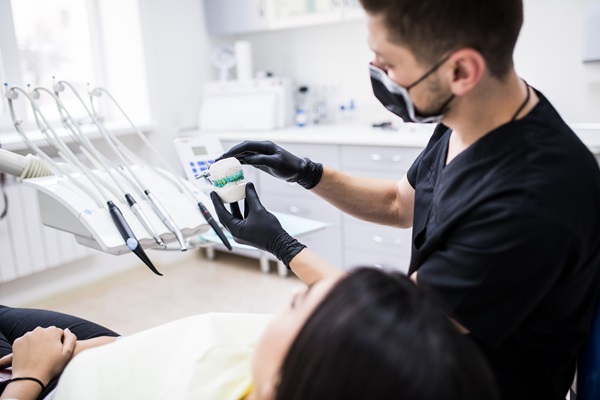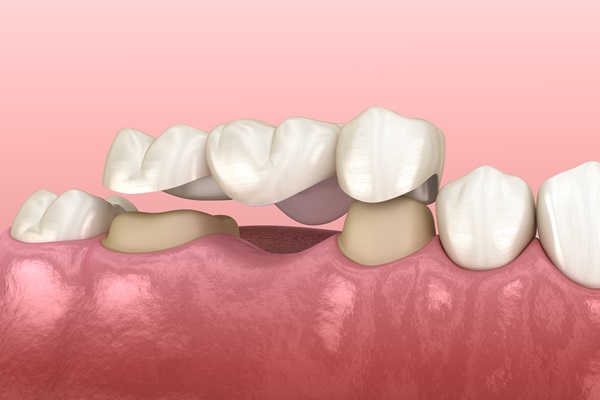5 Signs You May Have Tooth Decay Forming

What is tooth decay?
Tooth decay is where plaque (a combination of bacteria, acid, food, and saliva) forms on the teeth and causes a hard outer layer on the teeth or the enamel. This layer will decay or weaken the tooth. This causes pain, infections and the loss of teeth, which can affect both children and adults.
How to tell if tooth decay is forming
Toothaches
Toothaches are one of the most common signs of tooth decay. Pain may be mild at first and is only felt when biting on hard foods, but over time pain will be experienced even when eating soft foods. The pain will continue to increase as the tooth decay forms.
Tooth sensitivity
Tooth sensitivity can be described as a tickle or tingle in the teeth. It is commonly experienced when eating or drinking hot or cold food and acidic or sugary foods. While it might not be painful, it is a clear sign of tooth decay
Swollen or bleeding gums
Swollen or bleeding gums are a clear indication that something is wrong with the teeth. This is usually tooth decay caused by improper oral hygiene.
Halitosis (Bad breath)
As aforementioned, tooth decay is formed by bad bacteria. This same bacteria leads to persistent bad breath as bacteria has already penetrated the tooth. This is identified by a bad taste in the mouth even after brushing the teeth and while brushing the tongue.
Spots on the teeth
This is the last stage of tooth decay before holes start to form in the teeth. Dark brown, grey and even white spots form as bacteria makes its way down into the enamel and can even conceal a hole that has already formed in the teeth.
Treatment and prevention
Luckily, if detected early, tooth decay can be treated. Any further harm or tooth decay can be prevented if appropriate measures are taken.
Treatment
•Using fluoride is one way to stop tooth decay in its tracks. Fluoride can be acquired through fluoridated water or by purchasing fluoride toothpaste. Dentists may also prescribe fluoride tablets, apply fluoride gel or suggest using a fluoride mouthwash. This will prevent the loss of minerals in the enamel, replace minerals lost and kills acid-forming bacteria.
•Dental sealants may be applied by a dentist to treat tooth decay. This covers the surfaces of molars and prevents food and bacteria from becoming trapped in tiny crevices that would cause further decay.
•If decay has caused holes to form in the teeth, the dentist may suggest getting a filling or a crown. Here, the decay is removed and the space is filled.
Prevention
To prevent tooth decay from forming again, it is recommended that people:
•Reduce the amount of sugar and starch in their diet, and substitute it for tooth-healthy foods such as fruits, vegetables, or dairy products.
•Brush and floss the teeth regularly. This includes the gums and light cleaning of the gums. Mouthwash is also recommended because it thoroughly cleanses the entire mouth.
•Visit the dentists regularly in order to have their teeth cleaned properly and inspected for signs of problems.
If you are to have a healthy mouth, you must know how to detect the signs of tooth decay. Inspect your teeth regularly before it is too late!
Request an appointment here: https://www.drbrucematson.com or call Bruce Matson, DDS at (713) 481-4626 for an appointment in our Houston office.
Recent Posts
When you cannot reach an emergency dentist, relying on professional tips can help relieve your toothache. Dental issues can spring up all of a sudden, and when you are in a situation where you cannot access an emergency dentist, effective tips are all you have. Some solutions may be quick-acting, while others may help manage…
A chipped tooth can lead to serious complications, which is why it is so important to undergo a repair. There are many ways that a general dentist can treat a tooth with a chip in it, ranging from composite bonding to dental veneer placement. While it can be tempting to let a chipped tooth go,…
Anyone who has experienced a Dental Emergency can attest it is not fun. Not only is it painful, but it can also be scary. Even those who take good care of their teeth can experience a dental trauma, but the situation can be less stressful if one knows what to do.Following the appropriate steps can…
Dental health professionals are responsible for providing a safe environment for emergency dentistry procedures during the Coronavirus (COVID-19) disease outbreak. Considering the risks of cross-infection in dental offices, the American Dental Association and the Center for Disease Control (CDC) have developed guidelines to control infections during any emergency dentistry care. This includes a thorough cleaning…


